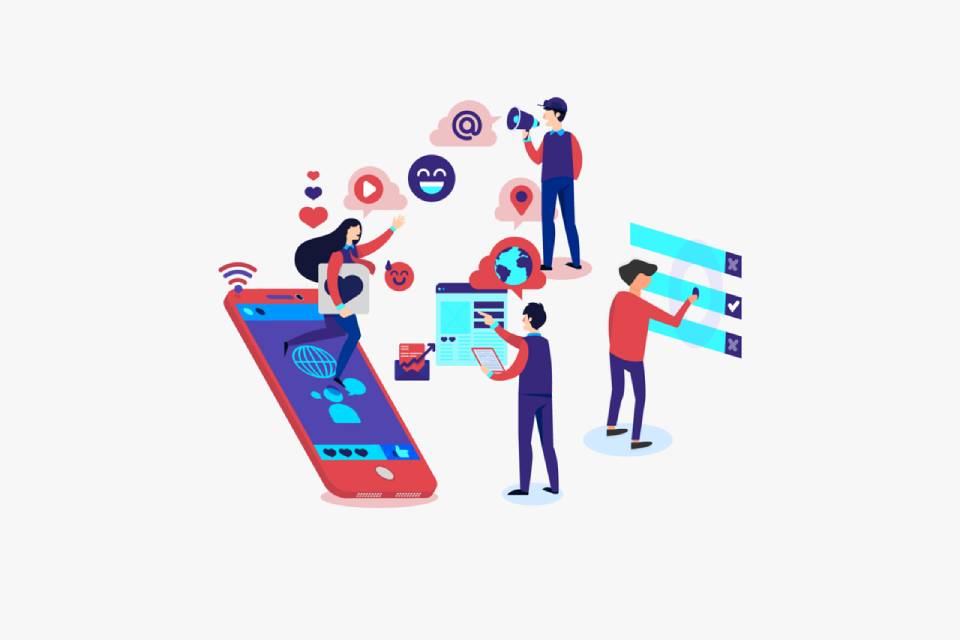Chatbots are artificial intelligence tools that allow companies to provide efficient and quality customer service in an automated way. These programs are capable of answering questions and resolving customer concerns quickly and accurately. Resulting in improved user satisfaction and reduced response time.
AI-based customer service is a trend increasingly used by companies. To optimize your processes and improve the customer experience. Chatbots can be programmed to answer frequently asked questions or make reservations. As well as tracking orders and performing technical support tasks, among others.
One of the main advantages of chatbots is that they are available 24 hours a day. They are allowing customers to get immediate answers to their questions at any time. In addition, chatbots are capable of processing large amounts of data and analysing it. To provide valuable information to the company about customer needs and wants.
However, it is essential to note that chatbots cannot wholly replace human interaction in customer service. It is necessary to find a balance between automation and personalized attention. To provide a satisfactory customer experience. In this sense, it is recommended that companies use chatbots as a complementary tool to human attention. And train your employees to use chatbots effectively in their daily work.
In short, chatbots are a helpful tool to improve customer service in companies. Their ability to respond quickly and accurately, combined with their availability 24 hours a day, make chatbots an efficient solution for companies looking to improve the customer experience.
What Are Chatbots, And How Do They Work In Customer Service?
Chatbots are artificial intelligence programs designed to interact with users conversationally. They use algorithms and knowledge bases to understand customer queries in such a way that they provide relevant answers.
Chatbots can operate through messaging apps, websites, or specific platforms. Upon receiving a query, the chatbot analyses the text, identifies keywords and uses predefined patterns. To generate an appropriate response. As chatbots interact with more users, their responsiveness improves. This is thanks to machine learning and updating its knowledge base.
Advantages Of Using Chatbots In Customer Service
Chatbots in customer service offer a wide range of advantages, which drive efficiency and customer satisfaction. One of the most notable advantages is its availability 24 hours a day, seven days a week. This means customers can access fast and accurate responses at any time, even outside of business hours, which significantly improves the customer service experience.
Additionally, chatbots can handle multiple queries simultaneously, unlike human agents, who may need more than one customer at a time. Chatbots can interact with various customers at the same time. This speeds up response time and allows faster attention to a more significant number of queries.
Another critical advantage of chatbots is their ability to process large volumes of data. They can analyse detailed information about customers, their preferences and purchasing behaviours, which provides companies with valuable information to improve their products and services.
Chatbots can perform real-time data analysis and provide reports on patterns and trends, which helps companies make more informed and strategic decisions.
Additionally, chatbots can be highly customizable. They can be programmed to adapt to the tone of voice and brand identity, which guarantees a consistent service experience aligned with the company’s values. They can also remember previous interactions with customers, allowing for more personalized and contextualized attention in future interactions.
Business Perspective
From a business perspective, chatbots also offer cost advantages. Automating specific customer service tasks with chatbots can reduce operating costs. Well, they reduce the workload of human agents and allow them to focus on more complex and high-value queries.
In summary, the advantages of using chatbots in customer service include their 24/7 availability, the ability to handle multiple queries simultaneously, processing large volumes of data, personalizing the experience, and reducing operational costs. These combined advantages provide an efficient, convenient and highly satisfying customer experience. At the same time, it allows companies to optimize their operations and obtain valuable information about their customers.
Everyday Use Cases For Chatbots In Customer Service
Chatbots in customer service have a wide variety of everyday use cases that provide benefits to both businesses and customers. Here are some more detailed examples:
- Answers to frequently asked questions: Chatbots are incredibly efficient at providing solutions to common and frequently asked questions. They can offer information on return policies, hours of operation, pricing, locations, and more. Using natural language processing algorithms, chatbots can understand and respond to customer questions quickly and accurately without the need for human intervention.
- Reservations and scheduling: Chatbots can make it easier to make reservations and schedule appointments. For example, in the hotel industry, they help in booking rooms, providing information on availability and prices, etc.
- Order Tracking – Real-time updates on the status of customer orders. Users can get information about the progress of their purchases, shipping details, and estimated delivery dates without having to contact a human agent. This streamlines the process and provides a convenient tracking experience for customers.
- Technical Support – They can offer step-by-step troubleshooting guides, provide troubleshooting information, and offer helpful links to additional support resources. In many cases, chatbots can resolve technical issues without the need for human intervention, allowing for immediate assistance and improving customer satisfaction.
- Information and feedback collection: Chatbots can collect valuable data about customers by conducting surveys and collecting feedback. Companies can use this feedback to improve their products, services, and customer service strategies.
Effective Implementation Of Chatbots In Customer Service Strategy
To effectively implement chatbots in your customer service strategy, it is essential to customize them according to the needs of the company and its customers. This involves defining the chatbot’s tone of voice and communication style to match the brand identity. It is also important to integrate the chatbot with other communication channels, such as email or phone, to provide a seamless omnichannel experience.
Additionally, training staff to collaborate with chatbots is essential to ensure a smooth transition between automated care and human care when necessary. Continuous monitoring and optimization of the chatbot are key to improving its performance and accuracy in responses.
The Balance Between Automation And Personalized Attention
Finding the right balance between the automation provided by chatbots and personalized attention is essential for a successful customer service experience. Chatbots are ideal for standard and repetitive queries, offering quick responses.
However, it is crucial to recognize when human intervention is needed, especially in complex or emotional cases. Chatbots can be programmed to transfer to a human agent when necessary—ensuring personalized and empathetic attention.
Additionally, it is essential to collect and use the data generated by chatbots to understand customer needs better and personalize future interactions. This hybrid approach ensures a comprehensive experience that combines the efficiency of chatbots with the human touch required to solve more complex problems.
Aspects To Highlight
In conclusion, AI-based chatbots are a powerful tool to improve customer service in companies. Their ability to provide quick and accurate responses, combined with their 24/7 availability, provides an efficient and convenient customer service experience.
Chatbots can handle common queries, perform automated tasks, and provide valuable information about customer needs and preferences. However, it is essential to find the right balance between automation and personalized attention, ensuring that chatbots are complementary to human interaction when necessary.
Effective implementation of chatbots involves customizing them, integrating them with other communication channels, and training staff to collaborate with them effectively. By finding this balance and making the most of chatbots, businesses can optimize their customer service processes, improve customer satisfaction, and achieve a competitive advantage in today’s market.
Also Read: The Challenges And Threats Of Ai





